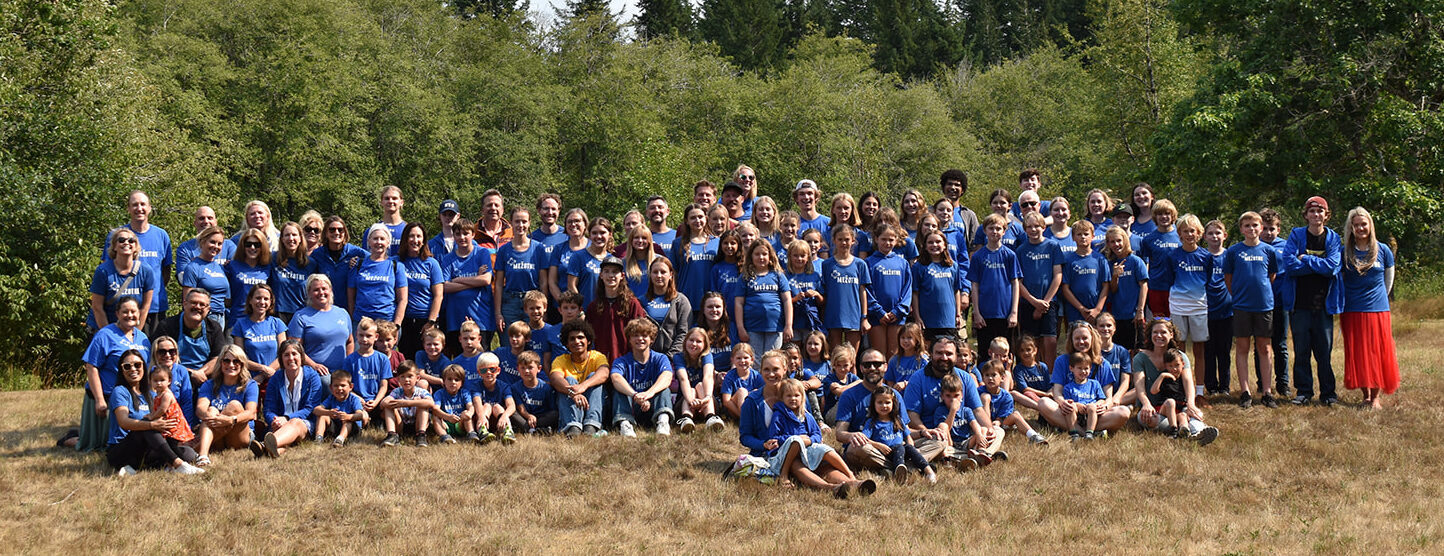1. Registration and camp fees
REGISTRATION DATES: Online registration through the Active Camp portal opens February 1st. Registration closes on February 14th if camp is at capacity. Please email jenny.roberts@rklic.org or purkskis@hotmail.com for help.
PAYMENT AND SCHOLARSHIPS: Tuition for Mezotne is set every year and may change from the previous year’s tuition rate. Payment must be received in full at time of registration.
Anyone needing financial assistance through scholarships should email jenny.roberts@rklic.org to receive a code to only have to pay the deposit rate of $100. Campers staying off-site (i.e.: in personal trailers) can receive a $50 discount.
If campers receive more scholarship money than needed to cover tuition and other camp expenses, Mezotne will refund the deposit. Depending on what the issuing organization deems, any scholarship money received above camp fees will either be returned to the family for travel expenses, kept as a donation to the camp, or returned to the organization.
REFUNDS: A full refund of camp tuition is given if registration is cancelled by June 1st, minus $25 Active Camp processing fee. If cancelled after June 1st, no refund is given.
AGE RESTRICTIONS: Children who are younger than four years of age as of the first day of camp will not be considered as having priority when registration opens. Priority registration will be given to campers age 4 (as of the first day of camp) through 14.
REGISTRATION PRIORITY: Registration occurs in two sessions or lists:
- General camper session which has space for 50 campers ages 6-14
- Mazputnini camper session (ages 4-5) which has space for 5 children and 5 chaperones
-
- If Mazputnini is already at capacity, the next child without an accompanying adult chaperone listed on the wait list will be offered a spot.
- If Mazputnini is not at capacity, the next child listed in waitlist order from either session will be offered a spot. If a Mazputniņš is next in waitlist order, there must be room for both a child and adult chaperone (2 spots).
- If space becomes available, you will be notified and moved off of the waitlist. Payment in full is due within one (1) week of being transferred off of the waitlist.
- Failure to pay in full within one (1) week of being transferred off the waitlist, will result in the forfeiture of your spot, and it will be given to the next child on the waitlist.
- If a waitlist does not exist as of April 1, anyone who had previously expressed interest in future attendance, even under the age of four, will be contacted about open spots.
- Mezotne directors reserve the right to make exceptions to this policy. Exception examples include “grandfathering” of past participants who are younger than 4 years old and infants who are not taking up accommodations (e.g., in a pack and play).
2. Chaperones
- Chaperones are always required for Mazputniņi (ages 4 and 5). There must be at least one (1) adult responsible for no more than two (2) children in Mazputniņi.
- Chaperones for children older than six years old are allowed if/when there is a need for reasonable accommodation. This policy is established in compliance with the Americans with Disabilities Act (ADA) of 1990 and ADA Amendments Act of 2008 (ADAAA or Amendments Act), 42 U.S.C. 12101 et seq., the Rehabilitation Act of 1973 (P.L. 93-11), and 45 CFR Part 84; Revised Code of Washington (RCW) chapter 49.60; Washington Administrative Code (WAC) chapters 162-26.
- Persons wishing to be on site and do not meet the criteria above may request to volunteer on the camp staff, or may choose to visit during the day at camp during visiting hours.
3. All Staff and Volunteers
Volunteers are not paid for their time, however they do not pay for food, room, and board.
CRIMINAL HISTORY BACKGROUND CHECKS
Under Washington State law[1], all staff and volunteers with unsupervised access to a child, juvenile, or vulnerable adult must complete a criminal history background check disclosure and pass a criminal history background check verification as a condition of employment or volunteer service.
The following criminal history background checks are run as part of the verification process:
- Washington Access to Criminal History (WATCH) through the Washington State Patrol
- National Sex Offenders Check
The staff member or volunteer may request a copy of their background check results.
Eligibility for employment or volunteer commitments is conditioned on, among other things, receipt of a satisfactory criminal conviction report and proof of eligibility to work in the United States. Employment or appointment as a volunteer may be denied for any misrepresentation or omission in the information provided.
Disclosure and Finding Review
Except as required by law, an individual is not disqualified from employment solely for having a criminal conviction record. When making employment eligibility or volunteer commitment determinations, any evidence that an individual has engaged in behavior suggesting the person may pose a risk to others, has not been consistently reliable and trustworthy, or has engaged in the kind of illegal activity that would pose a risk to the camp will be considered.
Information about an individual’s behavioral reliability may come from the individual, their employment history and references where available, prior volunteer experience, and a record of criminal convictions.
In evaluating conviction history, we consider the nature of the criminal conviction(s), its relationship to the position which the individual will be filling, how much time has passed since the conviction(s), the complete employment history, and any other information bearing on the individual’s ability to function reliably, lawfully, and safely.
Only after this full assessment is completed is a determination made whether it is appropriate to disqualify from employment or volunteer commitment an individual who holds a criminal conviction record.
KITCHEN STAFF AND VOLUNTEERS
Under Washington State law,[1] all food workers must successfully complete food safety training and hold a State of Washington Food Worker Card prior to handling food served in public.
All paid staff and volunteers working in the kitchen, serving food, helping with food preparation for classes or events, or otherwise work with unpackaged food, food equipment or utensils, or with any surface where people put unwrapped food are required to hold a valid food worker card. The expiration of the food worker card cannot be later than the end of the camp.
Mezotne will pay for the completion of the State of Washington exam on food safety upon request of the volunteer ($10).
A copy of the food worker card must be provided to Mezotne prior to the start of camp. Copies of the food worker cards will be posted in the kitchen for the duration of the camp.
For more information, visit the Washington State Department of Health (DOH) site’s information on Food Worker Cards or the Mason County local health department’s webpage. The only authorized online training program is www.foodworkercard.wa.gov.
4. Compensation
Employees who sleep or reside at the place of employment or spend a substantial part of their work time not actually working and those employees of charitable institutions charged with child care responsibilities engaged primarily in development of character or citizenship or promoting health or physical fitness or providing or recreational opportunities are exempt from the Washington state minimum wage RCW 49.46.
Counselor and Adult Paid Non-Volunteer Wages
Wages for counselors and adults paid non-volunteers for 2023 will start at $400.
[1] RCW 43.43.830, WAC 388-06
[2] WAC 246-217
5. Day-to-day
FOOD RESTRICTIONS: Mezotne is a nut-free zone. Peanuts, tree nuts or any sort of nut containing foods are prohibited from the dorms, dining hall, or any other common area.
SWIMMING PROFICIENCY: If your child is a non-swimmer, a U.S. Coast Guard approved Type III life vest or an acceptable personal floatation device (PFD) must be brought to camp and worn during pool time.
All Mazputniņi, regardless of swimming proficiency, must have an adult in the water with them at all times. A single adult may supervise, at most, two Mazputniņi when in the pool.
EMERGENCY DRILL AND SAFETY PROTOCOLS: On the first or second day of camp we will have an emergency drill so that everyone is aware of where to meet, and to be sure that we can gather all camp participants in one area in under 10 minutes.
As a safety protocol, any person with a motor vehicle at camp must have their vehicle keys with them at all times as a safety measure in case of emergency evacuation.
VISITORS: Mezotne operates as a “closed campus” and nobody is allowed to leave the premises without prior approval, including running off premises.
-
- During the week of Mežotne, camp will be considered a “closed campus”. Visitor’s days and hours may be set by the Camp Directors and will be communicated.
- Under no circumstances are they allowed to stay on-site overnight without approval from the directors.
- While Mezotne is a closed camp, camp directors may approve certain individuals to leave camp for approved reasons, e.g. pick-up supplies.
Per our insurance, all visitors must sign in with the camp director and wear a name badge.
REIMBURSEMENTS: If you acquired goods to be used at camp and are in need of a reimbursement, forms and receipts must be turned in to the board by the end of August, preferably by the last day of camp. The RKLIC treasurer will mail reimbursement checks to you.
6. Camp environs and facilities
- No persons shall cut or damage shrubs and trees, or damage or deface camp facilities and equipment.
- Fires are permitted in designated areas only, and only if there is no burn ban in effect. Mason County burn bans apply to the West Coast Latvian Education Center (State Environmental Policy Act and Olympic Region Clean Air rules, and RCW 43.21C)
- Dispose of all waste materials in designated receptacles.
- Activities on or in the lake are not allowed.
- Swimming in the pool is permitted only in the presence of a certified life guard.
- Fire regulations prohibit motor vehicle parking by, or near, the dormitories, except for short-term loading and unloading. Motor vehicles must be parked in the lot near the entrance to the camp.
7. Personal safety
- Per RCW 66.44.270, 26.28.080, 9.41, 69.50 smoking, use of alcoholic beverages and drugs, and possession of weapons by minors is prohibited. (This does not include prescription medications, which must be kept in original labeled containers and must be administered by a parent or the designated camp health officer).
- No camper or staff member shall leave the camp without prior permission from the camp administrator. Each must sign out in the camp office noting destination, time of departure, estimated time of return, and a cell phone number.
- All campers and staff participate in requisite safety and emergency drills.
- Campers who upon registration indicate that they do not yet swim or cannot swim without a flotation device or assistance will be required to wear a Coast Guard approved life vest in the pool.
8. Interpersonal relations
- Per RCW 49.60.030, discrimination because of age, gender, sex, marital status, race, creed, color, national origin or physical or mental handicap is prohibited. Equally prohibited are bullying, misconduct, harassment, humiliation or endangerment of camp participants or facilities.
- All participants must
- Adhere to courteous behavior, respect others and avoid actions which are dangerous or harmful to themselves or others.
- Maintain a clean and orderly space in the assigned dormitory room and respect the privacy of others.
- Follow the daily schedule of activities, arrive on time, and actively participate.
Camp counselors will deal with disciplinary problems within their respective groups or refer them to the camp director. The director has the authority to contact parents to discuss problems or inappropriate behavior, to exclude the camper from specific activities or, if necessary, to send the camper home with transportation arranged by the parents. Parents should be reachable at their listed emergency telephone number while camp is in session.

